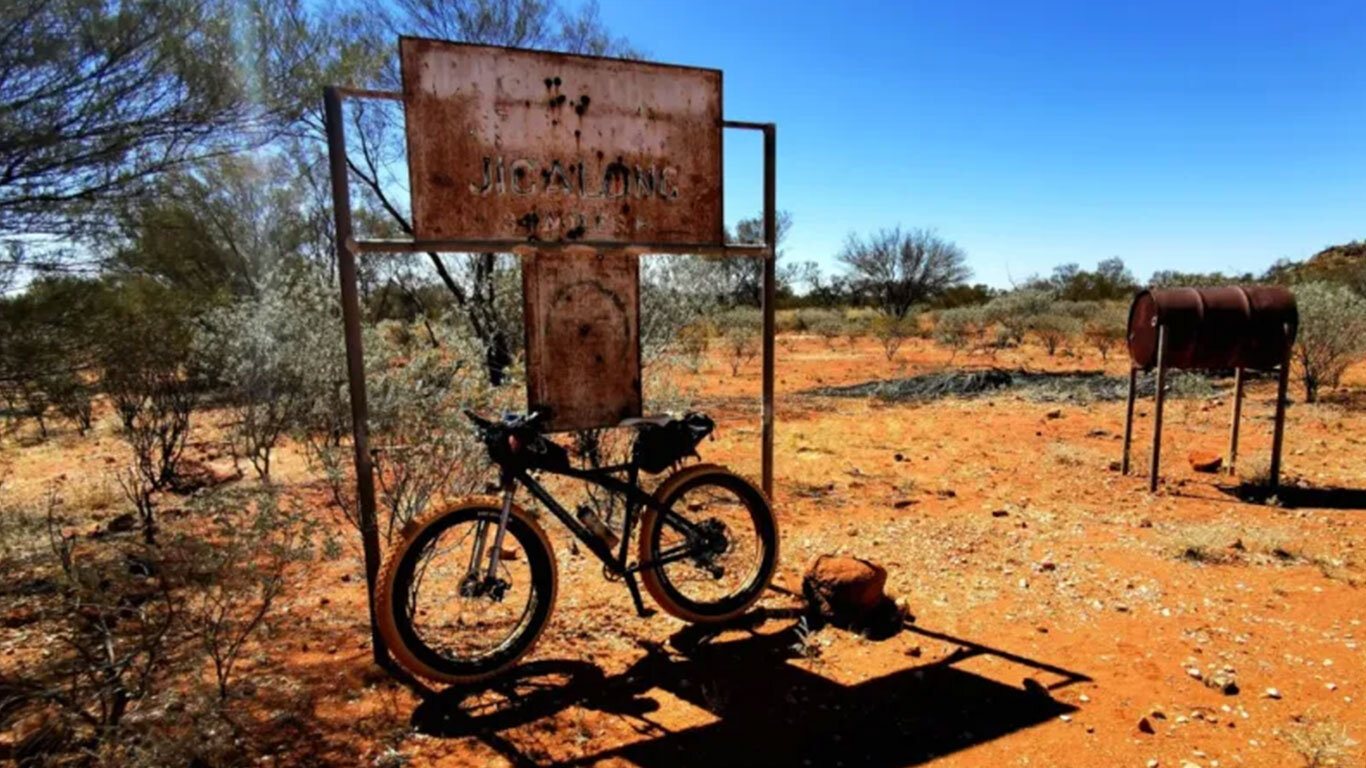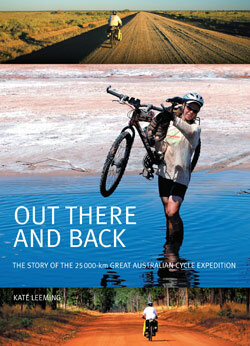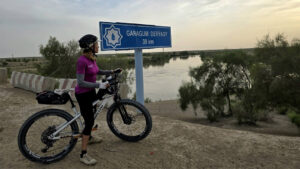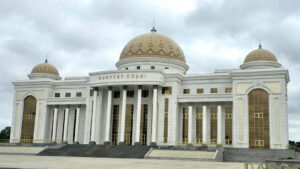Days: 81-85
Dates: 30th August – 3rd September
Kumarina to Jigalong
Distance: 388km
Total Distance 2023: 5626km
Total Distance (2021 + 2023): 7154km
DAYS 81, 82 | 220 KM (113 KM, 107 KM)
From Kumarina Roadhouse it was 220km to Jigalong. I first took the Great Northern Highway heading north for 50km before turning off on to the Jigalong Mission Road.
Some of the embedded thorns started to work their way out of my tyres on the hot tarmac. When large thorns came out, the sealant bubbled like foam, the hole too big to close automatically. Then I would have to stop, ensure the tyre was pumped tight and spin the wheel for as long as it took to force the latex strands in the sealant to plug the hole. This would usually take about 10 minutes.
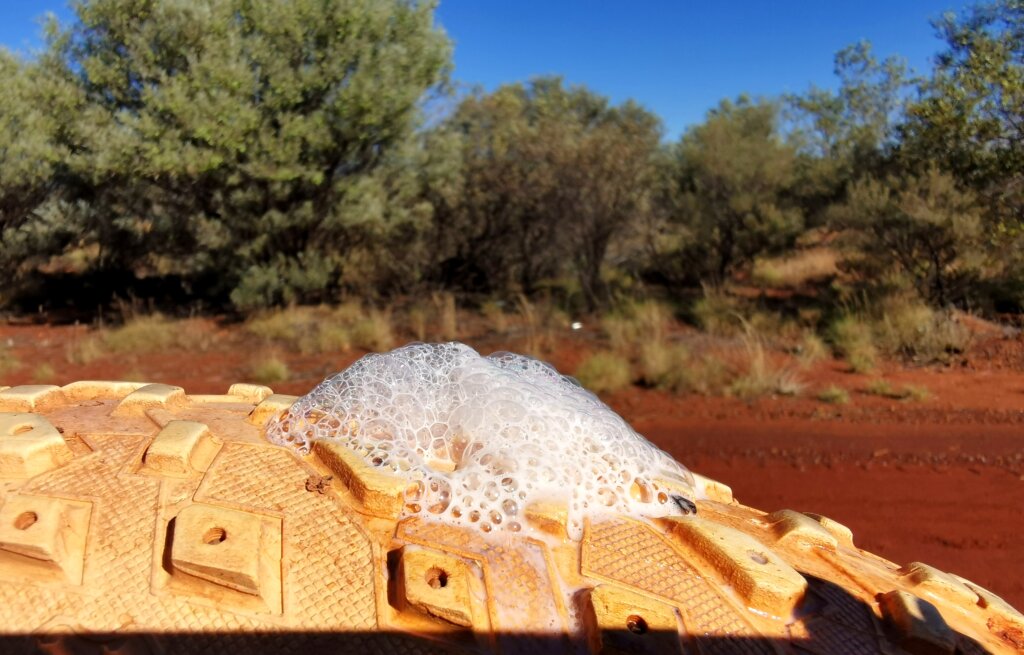
The Jigalong Mission Road is now a little-used gravel road but in pretty good condition. I had to push into a stiff headwind though, and the days are starting to get hot; the direct overhead sun in the early afternoon was very draining. Only Neil, Russell and Mark came for this section, the others drove directly to Newman, chiefly because they had vehicle parts to receive and repairs to do.
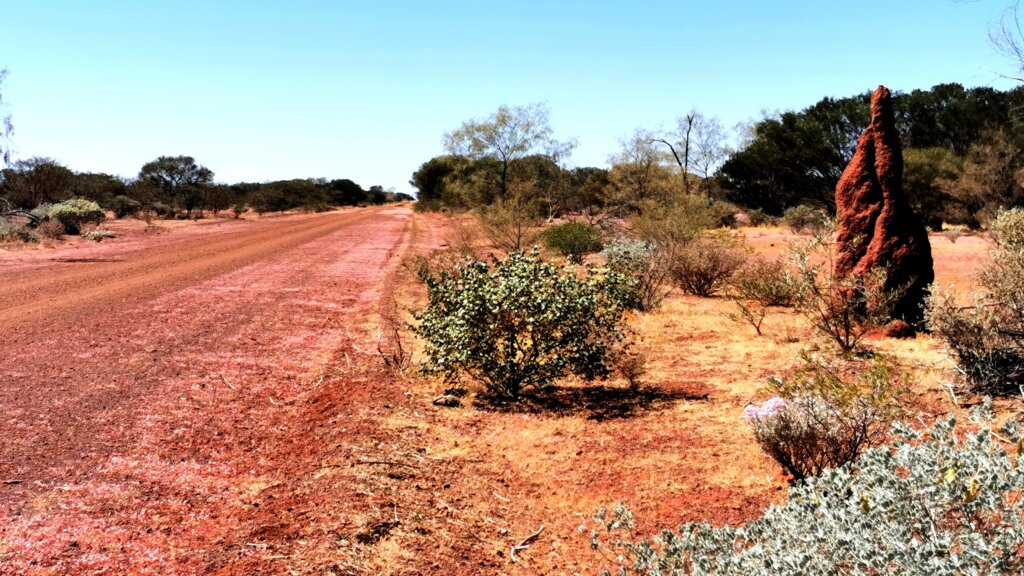
We camped in some beautiful gibber country, 9km short of where Savory Creek crosses the road.
Savory Creek flows into Lake Disappointment in the Little Sandy Desert. I had crossed the hyper-saline waterway during my journey up the Canning Stock Route in 2004, so it was an interesting landmark for me. I took a short walk along the creek. The underground water must have been plentiful because it supported a significant stand of ghost gums. The ground surface however, was covered with a crust of salt even this far away from Lake Disappointment.
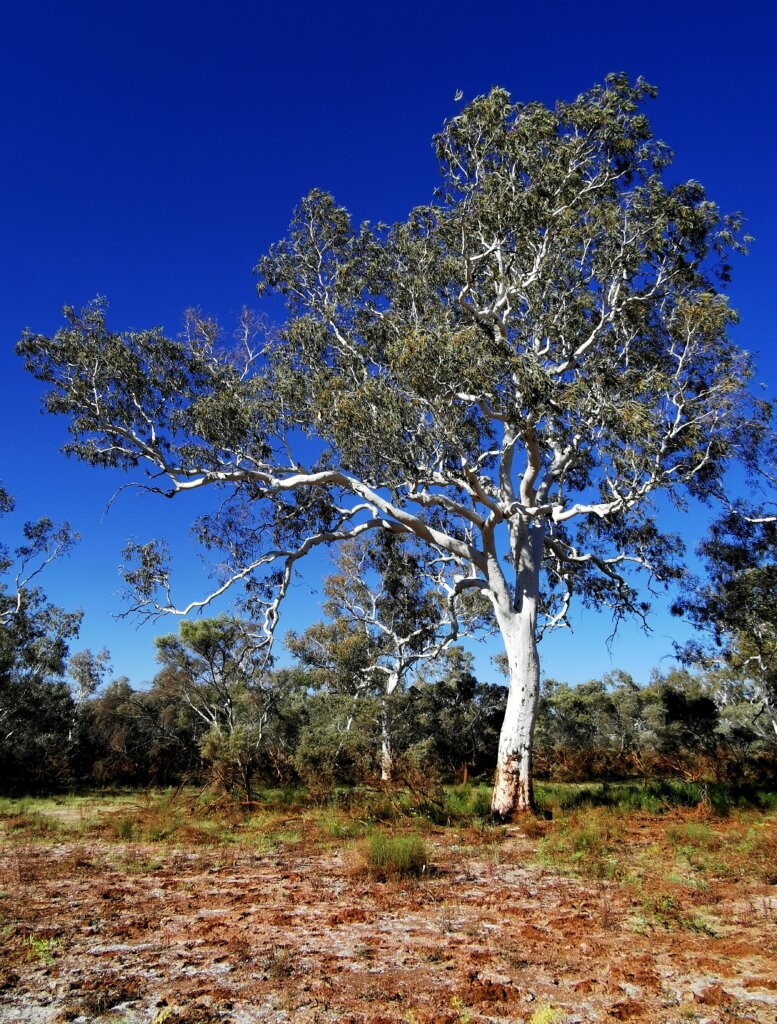
I battled into another very strong northeasterly breeze for the whole of the next morning. After 52km, we came to a fork in the road and an old sign pointing to the right directing us to Jigalong, 34 miles away. There was also an old mailbox. This junction was the point where the mail used to be delivered to the Jigalong community – so it was quite an expedition to get the mail for the town!
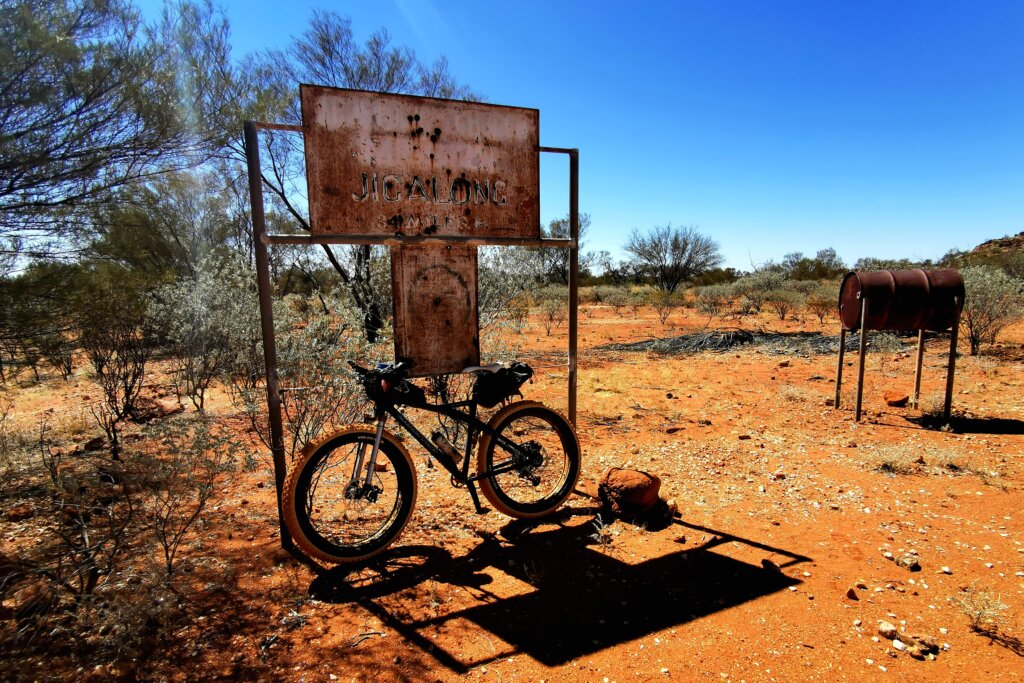
The track deteriorated to sand, sections of deep washaways, stones and as we neared Jigalong, corrugations. I had imagined that reaching the community would be fairly straightforward, but this section of the road, now only used by locals coming out to hunt, turned the afternoon into a very strenuous challenge – not only for me on the bike, but for Neil and Russell driving. I could cycle just about as fast as the vehicles could travel on these rugged surfaces. It was very hot, too!
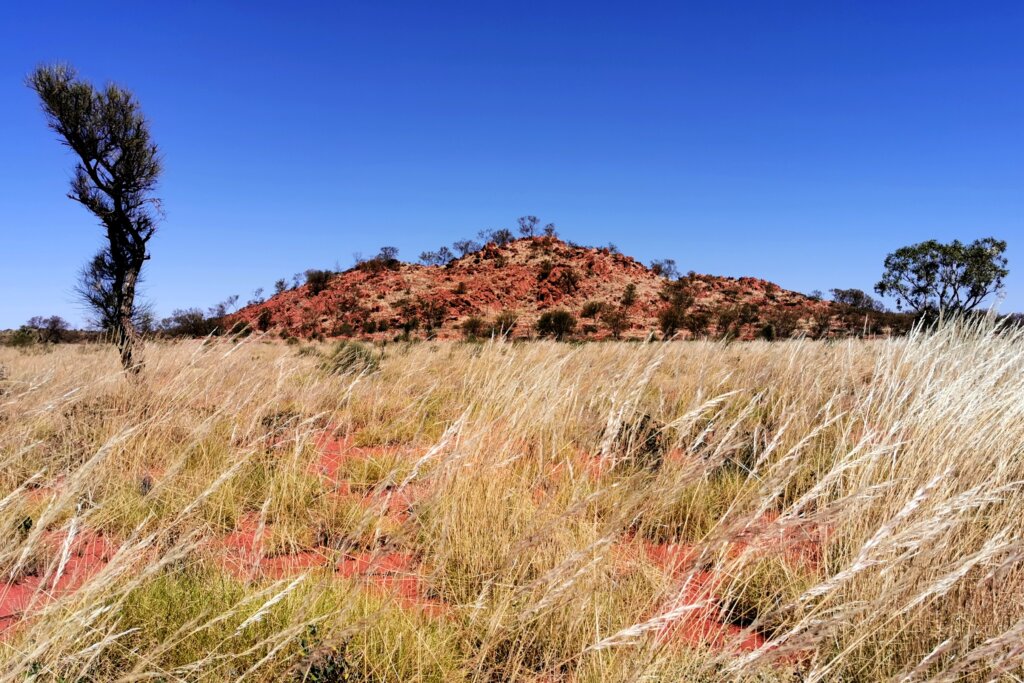
About 12 km out of Jigalong, I got a rare puncture – basically because I had dropped the tyre pressure to get through the sand, there was less pressure to keep the prickles already embedded in my thorn-encrusted tyres (from the Rabbit-proof Fence ride) at bay. I had received so many punctures that I had used up most of the sealant in the front tyre, until the tyre finally deflated. We were able to pump the tyre up so I could finish the ride into the town in the dark again. The following day, Russell and I added a large amount of new sealant and removed any remaining thorns. That did the trick.
Thanks to the CEO and the four people from the KJ Ranger programme, Chris, Kerry, Alex and Jackie, our time in Jigalong was very special and well worth the extra effort to meet some of the community. Kerry very kindly put us up at her home, so we had a great base for the two days.
Jigalong was established in 1907, as the location for a maintenance and rations store for workmen constructing the Rabbit-proof Fence. In the 1930s, the site was used for camel-breeding, but this use was abandoned once the motor car superseded the camel as a mode of transport. In 1947, the land was granted to the Apostolic Church which used it as a Christian mission and set up the Aboriginal community. The land that Jigalong is located on originally belonged to the Nyiyaparli people. The Nyiyaparli then granted the area to the mission and eventually there was an agreement with the Martu, traditionally nomadic people of the Western Deserts, who were removed from their land to live at the mission. The land was returned to the Australian government in 1969 as an Aboriginal reserve, and was granted to the Martu people in 1974. As of the last census, there were 300 people living in the community, though many lead transient lives (in the country, visiting relatives, attending funerals, etc), so there aren’t always that many around at one time.
DAY 83 | JIGALONG
The school had their sports day happening when we arrived – an event over two days with the Parnngurr community school joining the local students for the competition. We didn’t have much chance to interact with the students, but we did get to meet a few people, one being a community leader, Walter Dalbin.
Chris, Kerry and Jackie (KJ Rangers) were able to organise for Mark and I to meet Jigalong’s answer to the “Golden Girls”, the Sailor sisters who are highly respected Elders in the community. Lizzie, Julie and Brenda agreed to meet us and talk about their story on camera. They were very generous with their time as they had another important commitment.
Lizzie, the oldest sister (73 years old), led the conversation; the other two occasionally chimed in with a comment. Lizzie said she was born at Ethell Creek station, but had spent most of her life in Jigalong, living in the mission dormitories. She admitted that some of the discipline was very harsh and difficult for her to endure, but she could also see the benefits of having her education, to set her up for life. As a small girl she recalls her parents living in fear that she and her sisters would be taken away like many other children had been previously. She said her parents would come and take her out of school to protect her from being taken and then the missionaries would come and find the girls and bring them back again. Lizzie said this was a very difficult time, and there was always a very real fear of being taken. Once they were old enough, like most children who were educated at the mission, they would be employed by the local station owners as station hands or to do domestic work.
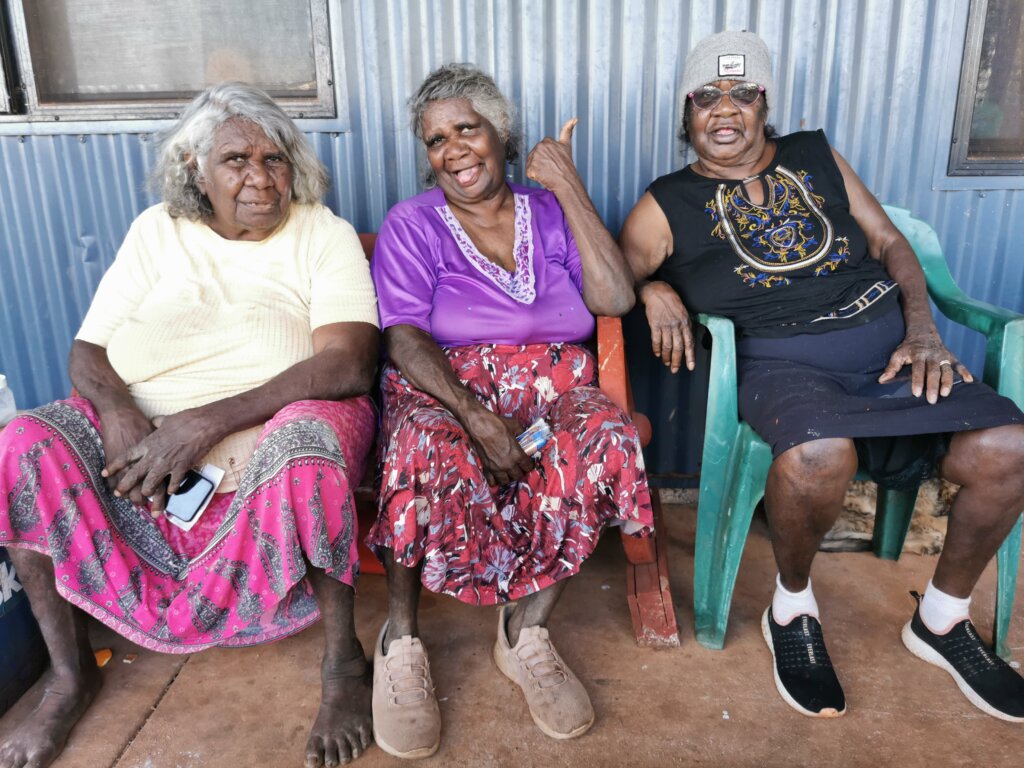
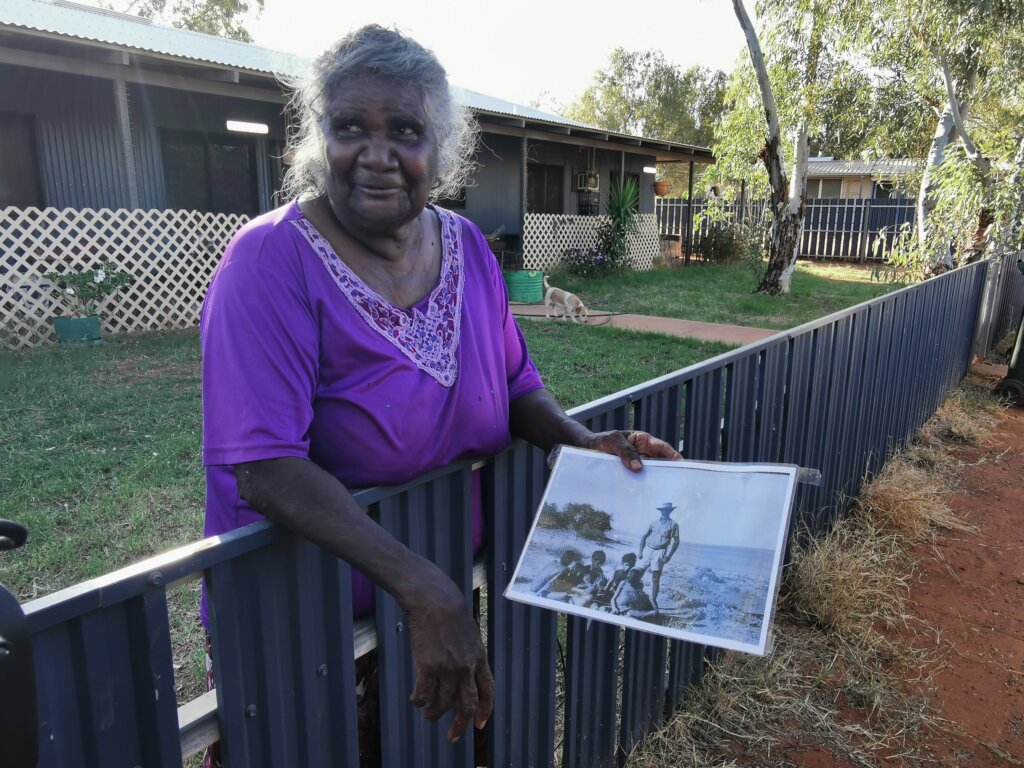
Before leaving to drive to Parnngurr (Cotton Creek) 243km away, for an important meeting relating to a new native title determination, Lizzie agreed to take us out to show us the Rabbit-proof Fence near the community. We piled into Jackie’s vehicle and drove for about 15 minutes, Lizzie giving directions from the back seat.
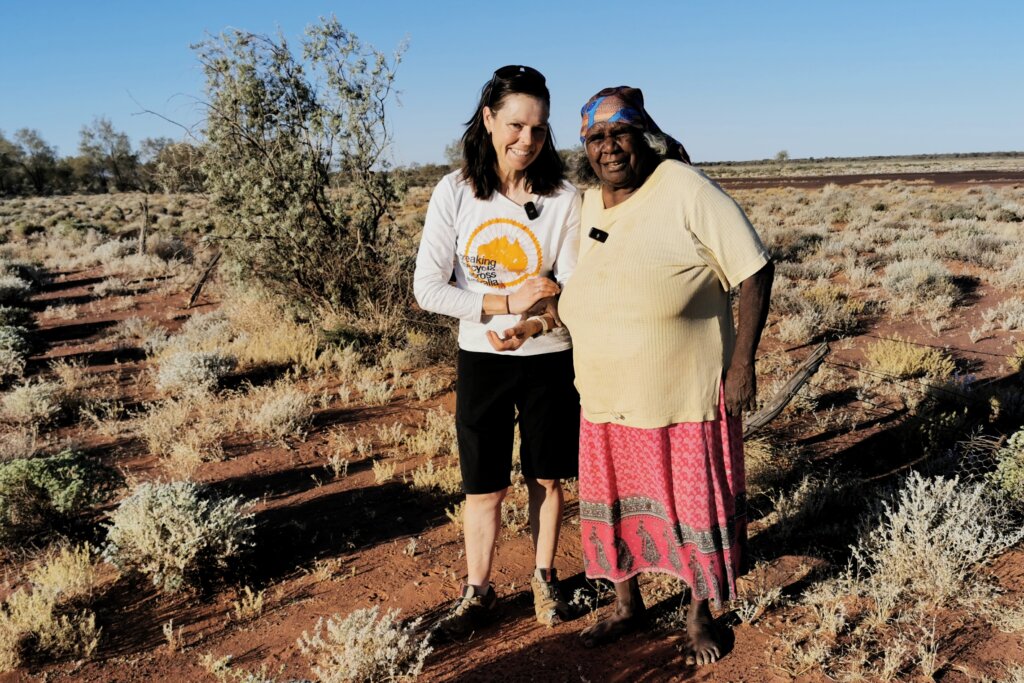
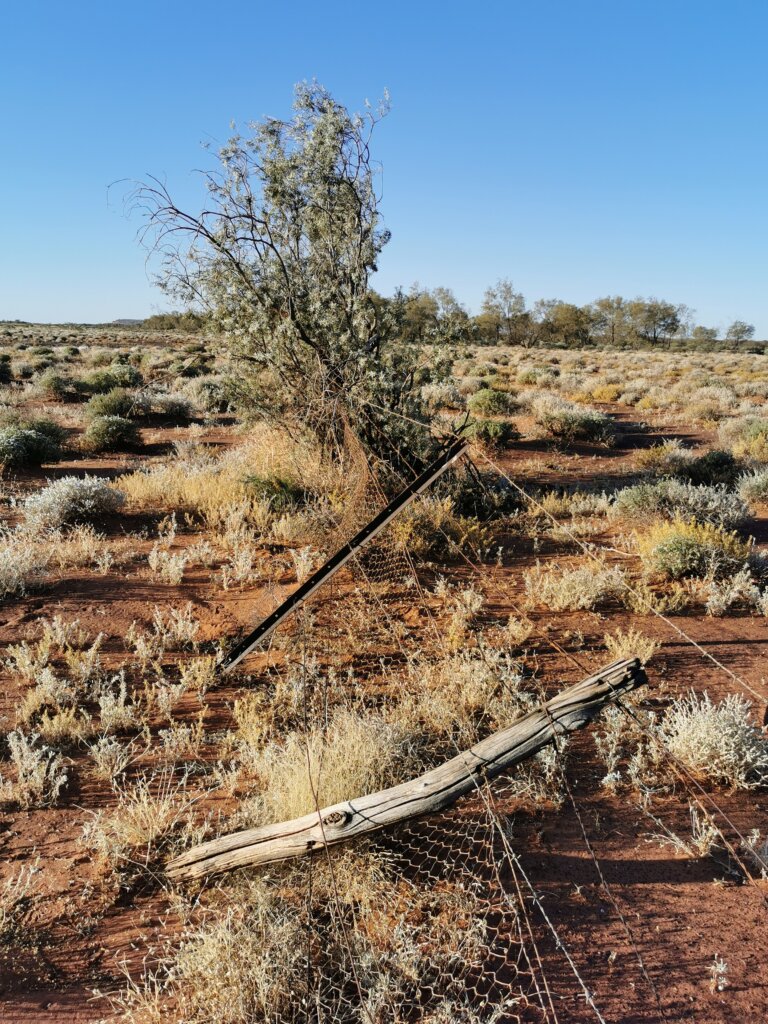
DAY 84 | JIGALONG + 35km TO JIGALONG CREEK CAMP
Before leaving, we also wanted to see where the old mission site was – about 15 minutes drive from the present community. Walter Dalbin agreed to show us the site – he had never lived there when it was operating, but he knew enough about the mission to show us. Set beside a creek, the site was chosen because of its abundant water supply. The mission was self-sufficient. They could grow everything they needed there. As Walter led us around, there wasn’t that much to see above the high grass – we could see where the manager’s house was, the vegetable garden, large water tanks, stock yards and, in the far northeast corner, a small grave yard graveyard containing the two graves of the missionaries.
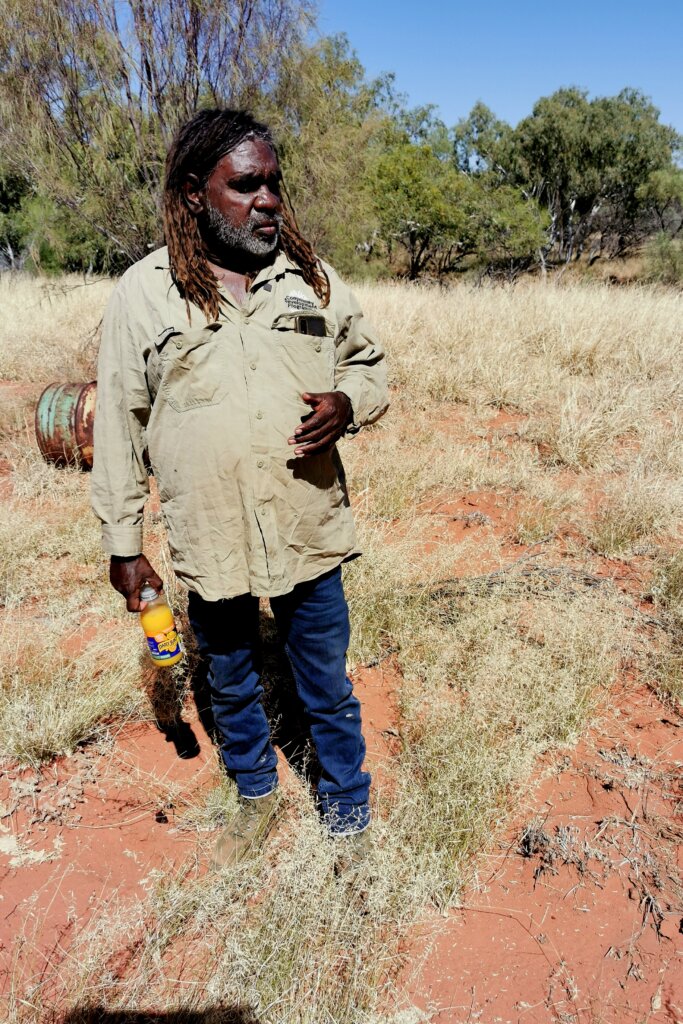
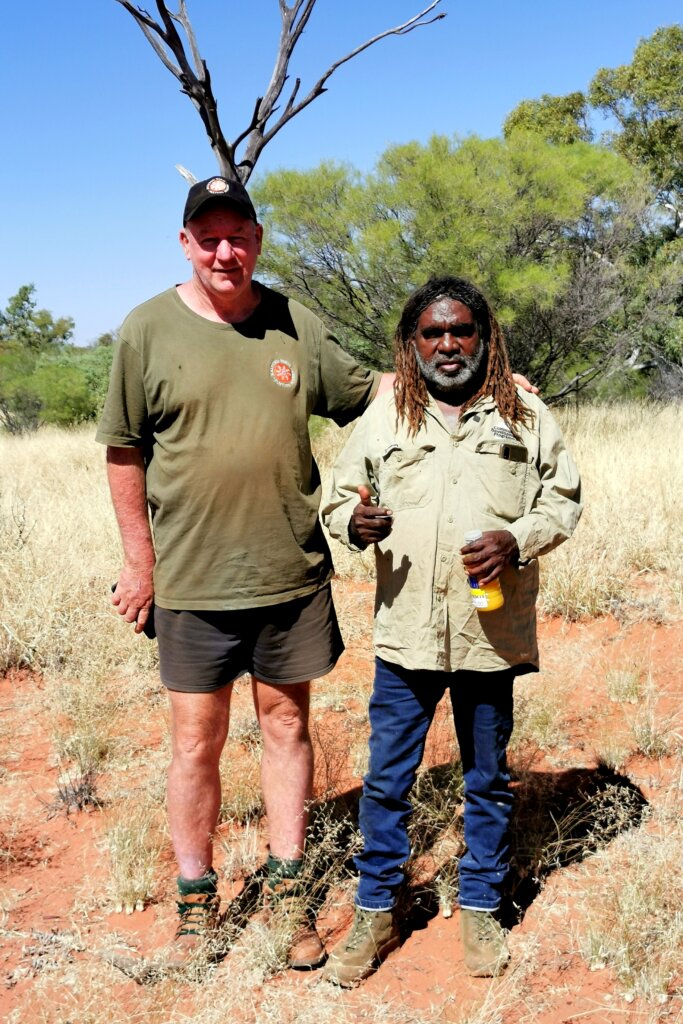
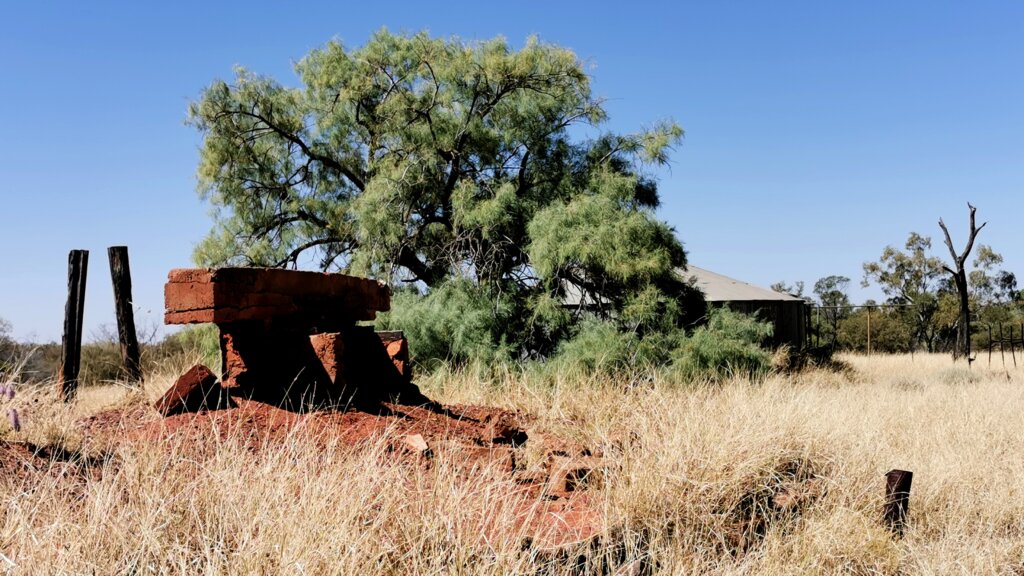
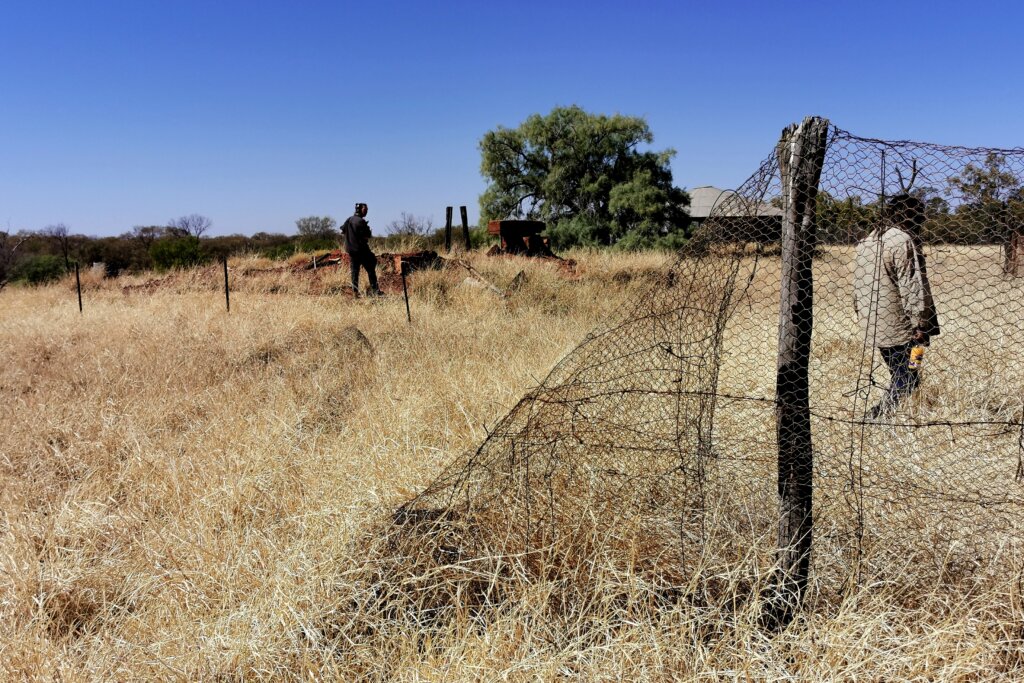
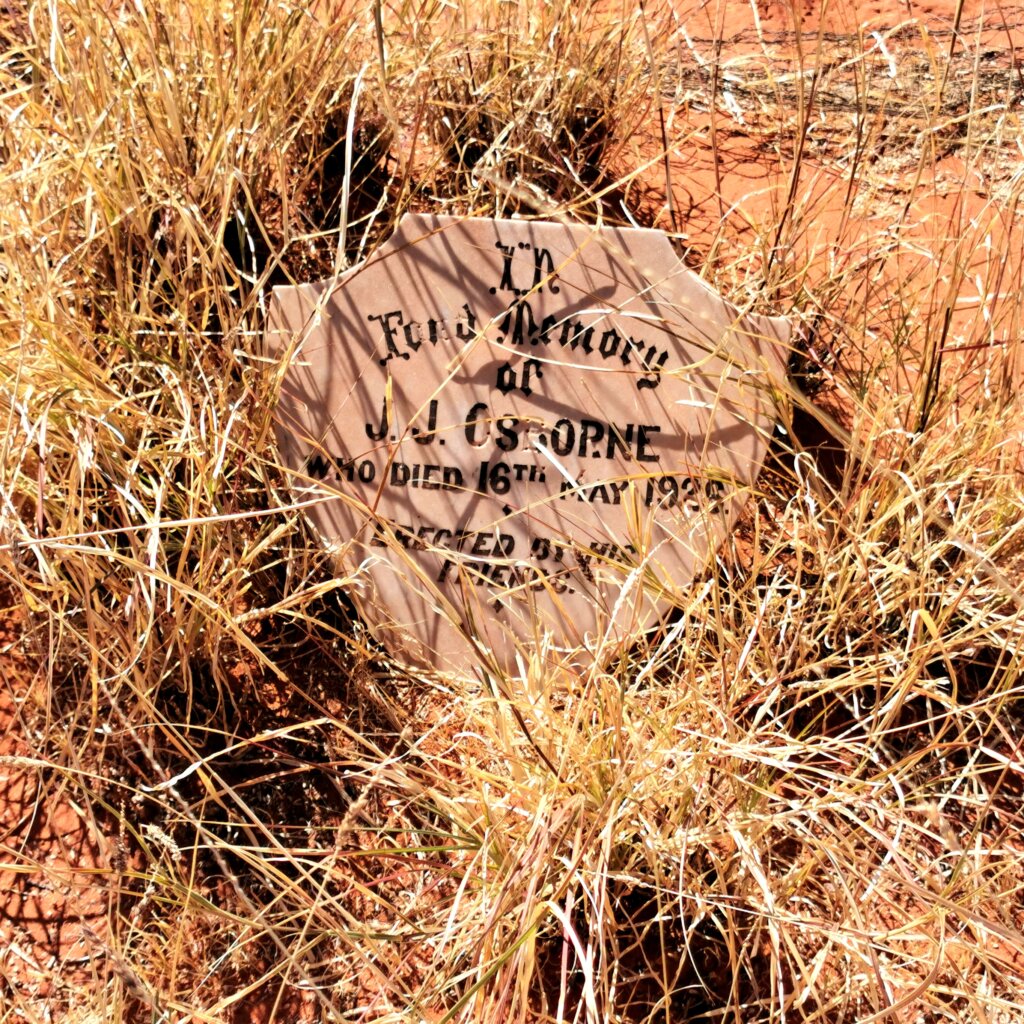
To ensure I reached Newman on time, I had to cycle 35km that afternoon, just as far as Jigalong Creek. I felt our time in Jigalong had been very worthwhile, but all too soon we had to be back on the road. We said our goodbyes to Kerry, Chris and Alex and set off.
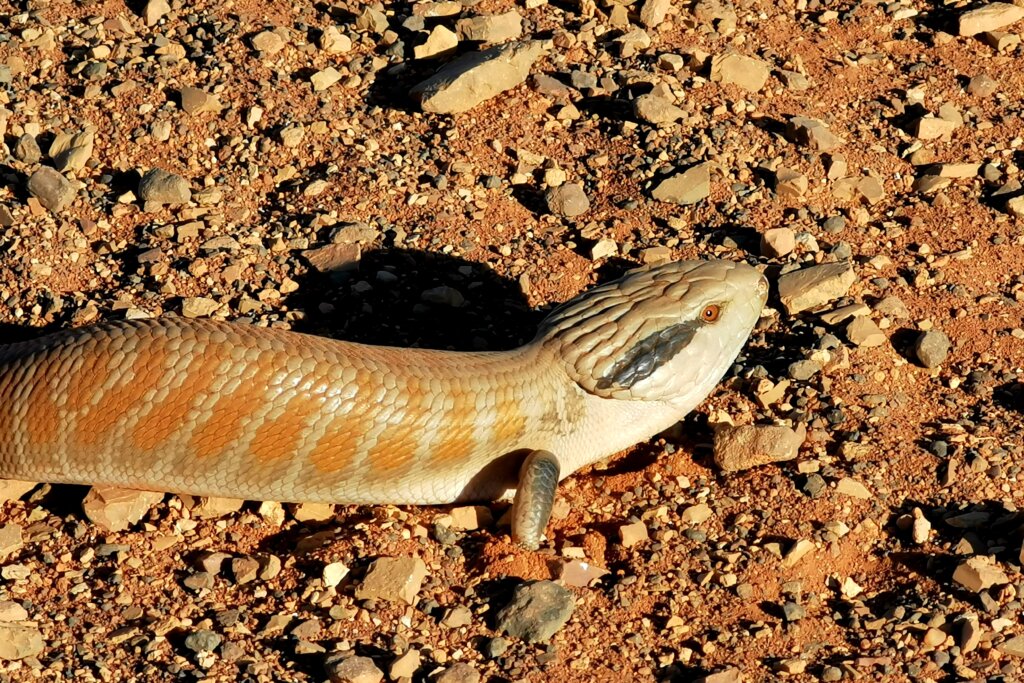
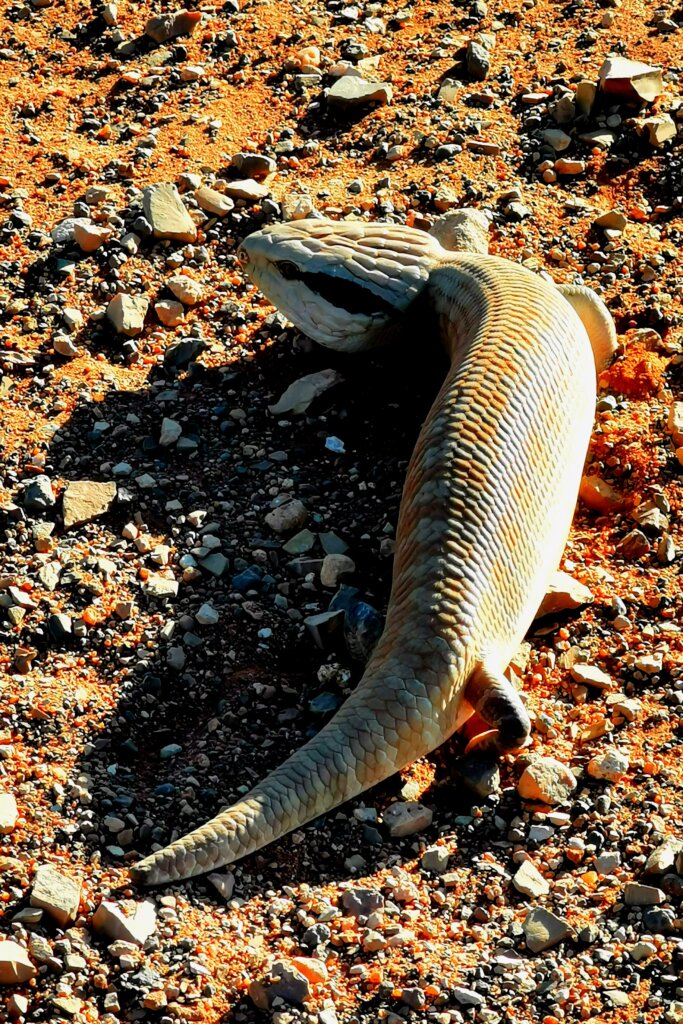
Day 85 | JIGALONG CREEK TO NEWMAN – 133 KM
Somehow, the wind direction had changed from a north-easterly to a south westerly, ensuring I had a headwind both to and from Jigalong. It was a brutal day; the road was well formed, but the coarse gravel made it tough to cycle on most of the time. I just had to keep pedalling and endure it. The final 62km were on the bitumen Marble Bar Road, but thanks to the headwind, I couldn’t cycle much faster than I did on the gravel. In the end, I arrived in the dark at 6.45pm using the headlights of Russell’s vehicle to see.


